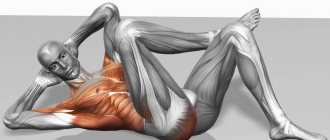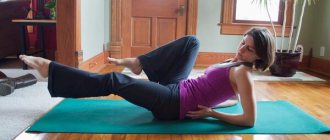But even in ordinary hectic life, this practice can give a lot. The simplest thing is to improve your physical health. And to the maximum - change your life for the better. How does it work and is it difficult to learn to meditate? Dr. Ravi Dovluru is confident that mastering this skill is not difficult. But you will need patience to practice daily, then the results will be visible within a few months.
By meditating, we improve health, quality of life and even delay old age
Dr. Ravi is a traumatologist-orthopedist, a graduate of the Peoples' Friendship University. Patrice Lumumba, in addition, he has been teaching yoga for many years at the yoga center he created in Moscow.
Meditation for Beginners
Meditation for beginners refers to a wide range of practices that include techniques designed to promote relaxation, cultivate internal energy and life force (qi, prana, etc.), develop compassion and love, patience, generosity and forgiveness.
And all of these benefits are indeed a pleasant “side” effect from the practice of meditation. There are dozens of specific styles of meditation practice and many different types of meditation, many of which can be described on our resource.
Meditation is:
- a relaxed state of mindfulness;
- a technique that involves the mind exploring its reasons for achieving certain goals;
- a practice aimed at making the mind aware of its contents without identifying itself with the content being studied.
A few important principles
Before moving on to breathing patterns and correct postures, let’s clarify a couple of basic points:
- Mindfulness and meditation are different concepts . Meditation is a set of mental exercises, and mindfulness is a state in which you fully experience every moment of time.
- The main thing in meditation is concentration and regularity. You will learn to relax, relieve fatigue and fall asleep quickly if you practice every day.
- Meditation is a tolerant practice. You choose the place, pose, time, duration, purpose yourself. The most important thing, as Kaggi Erling writes in the book “Silence in the Age of Noise,” is to “shut off the noisy world” and be alone with your thoughts and judgments for at least 10 minutes.
What's the point?
For centuries, people have been meditating in search of peace, happiness, transformation or control of their own consciousness.
If a person really feels satisfied with what he has and who he is, then more often he does not think about the need for self-knowledge.
But in most cases, people come to yoga and meditation when they feel inner hunger - a feeling that there is something bright inside, something vast and divine, but a person does not have access to it. This inner hunger comes from a spiritual need.
The purpose of meditation is to learn to control the most valuable tool of every person - the mind, attention. After all, the state of mind is the determining factor in the feeling of happiness and achievement of success in all spheres of life.
A person can have all the blessings and still feel unhappy, or, on the contrary, he can have very little, but feel in harmony with himself and the world around him.
Look around, observe yourself and your loved ones, media figures in the field of sports, politics, show business - no amount of material wealth, physical skills and resources will help a person become happy and peaceful if the way of thinking is negative and unconstructive.
Meditation will not solve your problems at home, at work, or in society. But it will give you much more - the ability to cope with any events (good and negative) occurring in your life, it will give you strength and teach you to let go of unnecessary emotions, feelings, thoughts.
Meditation helps you master your own mind by influencing one of its key aspects: attention. After all, everything that we pay our attention to exists for us.
Having mastered the ability to fix your attention only on what you need, you will be able to filter and not miss negative aspects, as well as everything that is not useful for you.
Thus, meditation for beginners is a powerful tool for working with consciousness, which will ultimately give you the opportunity to create and receive what you want.
Begin!
Now you are fully armed and can start practicing. It will be easier for beginners to do this with audio accompaniment from the instructor. The Meditations section with audio guides of meditations is always available to you.
Don’t put it off until tomorrow, try short meditations now that you can do anywhere and at any time.
Meditation Conscious breathing. Simple practice for beginners.
Meditation to reduce stress. SOS practice returns the mind to a calm, clear state, reduces tension in the body.
Find more meditation audio guides here.
Good luck with your practice and remember: whatever you practice gets stronger! Your awareness is no exception!
Relaxation or self-hypnosis?
In fact, relaxation is just one of the main effects of meditation. On the other hand, this is one of the conditions for successful meditation.
If you are focused on practice and not tense, this will help you achieve deep realizations and allow you to work with consciousness. Therefore, when we talk about “guided meditation” (yoga nidra, body scanning for the purpose of relaxation, etc.) - this is not meditation in the proper sense of the word.
Of course, such practices are good, because... relax and help relieve stress. But meditation is a deeper practice, working with consciousness first and foremost.
Meditation is also not hypnosis (or self-hypnosis), which involves verbal suggestion to see and feel certain things. To do this, the creative capabilities of the brain are used - imagination and visualization are used.
Meditation also generally does not involve imagination or the cultivation of emotions (except in some types of practices, such as Loving-Kindness meditation).
What is reality hacking
A hacker is a person who is interested in studying the details of programmable systems, studying the issue of increasing their capabilities, in contrast to the majority of users who prefer to limit themselves to studying the necessary minimum. Wikipedia
Each of us lives in our own reality - work, home, families, friends, hobbies, etc. And few of us would not want to hack this reality. That is, he doesn’t work until he loses his ability to work, fulfilling all his social obligations until he dies, but somehow just hacks into reality. At the same time, we do not consider chemical hacking - alcohol and all sorts of stronger substances, there is enough literature about this as it is. Moreover, usually, over the course of many years, most substances (with rare exceptions) lead to a reality that is much worse than it was before.
How about falling into magical realities in your dreams and living a second life there? Or, when dying, is he carried away to other worlds and consciously stay there? Or live in this world not for ~70 years, gradually fading and becoming stupid, but fully and vigorously for ~100 years? This kind of hacking usually arouses interest among us geeks, as can be seen from the articles here and from the popularity of science fiction literature.
To move on to hacking, let’s first understand the term reality. What it is? Even a review article on Wikipedia gives many definitions and characteristics of this term.
Reality (from Latin realis - material, real) is a philosophical term used in different meanings as something that exists in general; objectively revealed world; a fragment of the universe that makes up the subject area of the corresponding science; objectively existing phenomena, facts, that is, actually existing. There is a distinction between objective (material) reality and subjective (phenomena of consciousness) reality. Wikipedia
This definition is one of many - in some philosophical systems we can read very different ones, however, we will accept it as a basis to move on.
Of course, you can cheat and take subjective reality, describe it and say that everything works. More happiness, brighter dreams, better mood - hooray.
However, we will complicate our task and use the hardware term:
Reality is objective reality, that is, matter in the totality of its various types. Reality is contrasted here with subjective reality, that is, the phenomena of consciousness, and is identified with the concept of matter.
And now we can move on - how to give an example of hacking objective reality using meditation? To do this, we need to take some material object and prove that we can change it simply by meditating for some time daily. Here we go?
How to learn to meditate?
In modern sources you can find such a huge number of types of meditations and techniques, with descriptions of the process, effects and other things, that it is not at all necessary to look for a guru for this.
There are very serious techniques that have a great impact on the state of mind and even on physical well-being, so it is better to practice them in special centers or under the supervision of an experienced practitioner.
But most types of meditation are also suitable for beginners, which you can start practicing on your own - at home, in nature, even at work. To do this, you only need a little time and a convenient place.
You do not need to follow any strict rituals or wear special clothes to meditate. Some people prefer to prepare a place and space for meditation (using singing bowls, mantras and music, incense, images of deities and holy persons), because they see this as a necessity and help in preparing the mind for meditation - but all these actions are not essential for practices.
Of course, meditation was originally practiced to achieve spiritual enlightenment and was used in Eastern religious rites, which have certain attributes and adherence to strict rules. But, like most techniques that came from East to West, meditation today may essentially have nothing religious under it. You can practice meditation as a simple exercise for the sake of your health and well-being.
By the way, believers of absolutely any religion can practice without any conflict with their faith. In addition, today there are many methods and types of meditation, many of which were developed not by religious apologists, but, for example, by scientists and philosophers (some of these types of meditation are discussed by us in separate articles).
Relieved stress
The effects of meditation on health have been studied in many Western universities. It turned out that with regular exercise, the level of stress hormones - adrenaline and cortisol - decreases, changes also occur at the cellular level - for example, the reduction of the terminal sections of chromosomes, which serve as an indicator of the aging of the body, slows down (the shorter these sections, the older the person’s biological age). That is, by meditating, we postpone old age.
Yoga is one of the best ways to prevent heart and vascular diseases. Photo: Courtesy of Yoga-
Yoga is considered one of the best ways to prevent heart and vascular diseases. Moreover, in the USA, leading clinics use meditation in the treatment of cancer.
“No time” to meditate?
We strongly recommend that you observe your everyday life: for one week, pay attention to all the time you spend in front of a screen (TV, phone, computer).
Write down the time you spend each day. Now set aside 20% of this time for meditation. Now do you have time? And, probably, this is at least 10 minutes a day?
In the modern pace of life, watching TV and reading social media feeds are a way for the majority of the active population to escape from everyday problems. But just try changing the way you relax a little. We are confident in the result.
You will definitely feel better after meditation sessions - more relaxed, more focused, more rested. And it's free! All this is worth a few minutes of your time.
Many people find that once they start meditating, they have even more free time. And all because attention begins to focus only on what is really necessary!
Suddenly and absolutely organically, you will discover that you have been spending a lot of time on actions, experiences, events that are not useful to you at all.
Recommended complex for daily use
- Omega-3 (if you eat fish 2 or more times a week, you should NOT take this supplement)
- Vitamin D
- Mineral set
- 1 serving of protein daily, preferably in the morning (preferably replaced with 2 boiled eggs, ideally with avocado or extra virgin olive oil)
- Probiotics that survive outside of the refrigerator - Probiotics are very important for overall health, drink 1 time per day, with breakfast. We buy these particular ones, since they can mostly spoil outside the refrigerator and when we buy them, there is no guarantee that they have survived.
Fish oil and vitamin D are very important for both the brain and body, minerals and protein are important for the long-term health of the body. It is advisable to take it for those over 30 years old.
After 35-40 years, you can also start taking a couple of supplements for youthful skin and tissues and healthy joints:
- Collagen types 1 and 2"
- Collagen UC-II
Where to begin
We have looked in detail at the theoretical aspects of meditation. Now it's time to move on to practice. For those just starting out on their journey, it can be difficult to sort through the large flow of information. On the Internet you can find hundreds of instructions on how to meditate correctly, and it is not clear which one to choose.
I suggest you start with Vipassana (we have already talked about it above). It is simple and suitable for any skill level. You can learn it right at home with the help of a video: just follow the voice and don't worry about anything.
Definition
You can find many definitions of meditation on the Internet. Most of them have nothing to do with it. It is often identified with visualization, relaxation, auto-training, affirmations, prayers and other similar practices. They all have a common grain, but still the differences are very significant.
Meditation has a dual nature. On the one hand, this is a state of calm concentration in which a person completely dissolves and turns into an observer. And on the other hand, the process of immersion into this very state.
This practice came to us from ancient Eastern teachings. Around 500 BC. e. Buddhism began to emerge. Since then and to this day, adherents of this religion have been studying methods of transforming consciousness. In Sanskrit, meditation is called “dhyana,” which translates as “contemplation, vision with the mind, intuitive vision.” The word itself is of Latin origin and can be translated as “meditation.”











